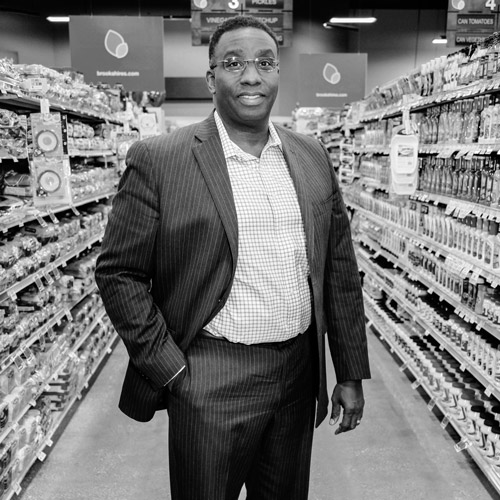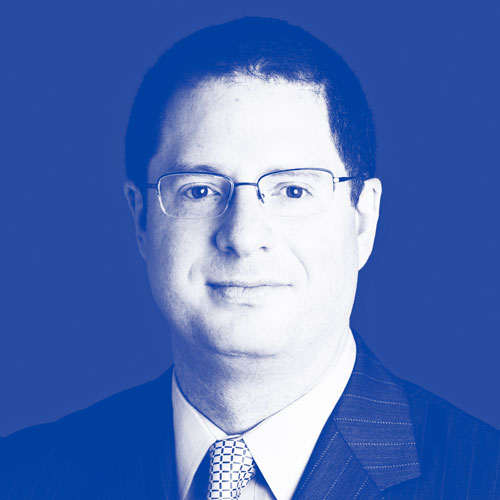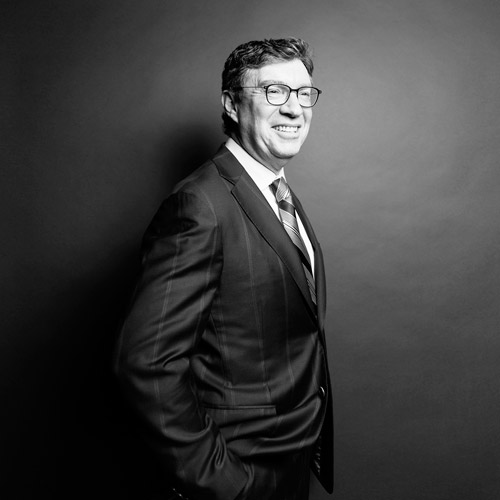Terrence Dixon’s first job was bagging groceries at the Safeway store in his hometown of Little Rock, Arkansas. The sixteen-year-old liked the job, the people he worked with, and the extra spending money it gave him. He has stuck with the business ever since.

Though he was still in high school, Dixon’s bosses noticed his strong work ethic and positive attitude, recommending him for Safeway’s management training program. Dixon was a quick study and was promoted to assistant store manager. When Safeway sold its Arkansas stores to Harvest Foods, Dixon was asked to try his hand in the advertising-marketing division.
Dixon continued working there through college, but soon after getting his bachelor’s degree in business from the University of Arkansas, Harvest Foods filed for bankruptcy. Some of the stores were sold to Brookshire Grocery Company, and Dixon was offered a position in its advertising department. When an opportunity opened up in human resources, company leaders suggested he make the move. “They needed someone to help with college recruiting, going to campuses and telling potential employees about the company and its various opportunities. Since I had worked in lots of different areas, I could describe the various positions,” Dixon explains. “I also had pretty strong communication skills and a passion for the industry, so I was a good person to have represent the company.”
Dixon decided to stay in human resources, taking on increasing responsibilities and rising to the department’s vice president in 2008. Now he oversees the administrative side of human resources—employee relations and recruiting—while another vice president oversees training and change management.
Dixon has twenty-five people on his team—some at the corporate headquarters in Tyler, Texas, and others known as field officers are located in various stores. In addition to handling HR issues in their home stores, each field officer is assigned a geographic territory to ensure that all stores are covered.
One of the HR programs launched soon after Dixon started is Brookshire’s alert line, which provides a third-party system for employees to file complaints. Employees can choose to identify themselves or remain anonymous, according to Dixon, who sees all complaints and determines who will respond.
“We take each complaint very seriously. Some are clear-cut and the action needed is obvious; others require an investigation,” Dixon says. “Whichever it is, we make sure the employee is notified immediately to let them know their complaint has been received and that something is being done.”
Brookshire also has an open-door policy, Dixon says, so employees don’t have to use the alert line. “I know lots of companies claim that, but we really mean it,” Dixon says. “They can reach out to anyone at any level, myself included, to lodge a complaint or share an idea. Our responsiveness and accessibility has helped minimize the number of employee lawsuits filed against the company.”
Dixon is also a huge proponent of increasing the diversity of the company’s workforce. “We evaluate market demographics and try to hire according to the community we’re serving,” Dixon says. “That’s easy to do when we’re opening a new store and hiring large numbers, since we can attempt to reflect local census data. It’s more difficult when we’re filling random positions.”
It’s crucial that Brookshire’s local managers reflect the base they’re serving, according to Dixon. “I don’t just mean diversity of race or ethnic background,” Dixon says. “We need to focus on less obvious types of diversity, too—diversity of thought, background, sexual orientation, religion, etc.” Dixon’s team also looks for people with good communication skills and engaging personalities. “They need to have a helpful and willing attitude. We provide training, but you have to start with some basic traits,” he says.
One aspect that Dixon emphasizes during initial interviews with potential employees is the importance of customer service, which is spotlighted throughout employees’ careers. “We look for this when screening potential hires; we stress it during the initial onboarding process; and we continue to provide training, both instructor-led and online, as long as someone is employed here,” he says.
Brookshire also encourages its employees to go above and beyond what people expect. “One way to explain how we view customer service is to say that if a customer asks the location of a product, we advise employees to escort them to the item rather than just verbally telling them where it is in the store,” he says, adding that Brookshire doesn’t have employee-of-the-month programs that are common at other retailers, but rather it tries to catch workers the moment they’re doing something great, and praise them on the spot.
Dixon says the increasing industry competitiveness is making it harder not only to recruit top talent but to keep them. One way Brookshire hopes to distinguish itself from competitors is through its scholarship program. “Once someone has been with us at least six months, they are eligible for tuition support,” Dixon explains, adding that employees can potentially receive money toward an associate, bachelor’s, or master’s degree.
“We believe in helping our employees grow professionally and hope that this, in turn, builds their loyalty and provides us with workers who are continuously advancing their skill sets and improving their knowledge,” Dixon says. “We see it as a win-win for the company and the employees.”

